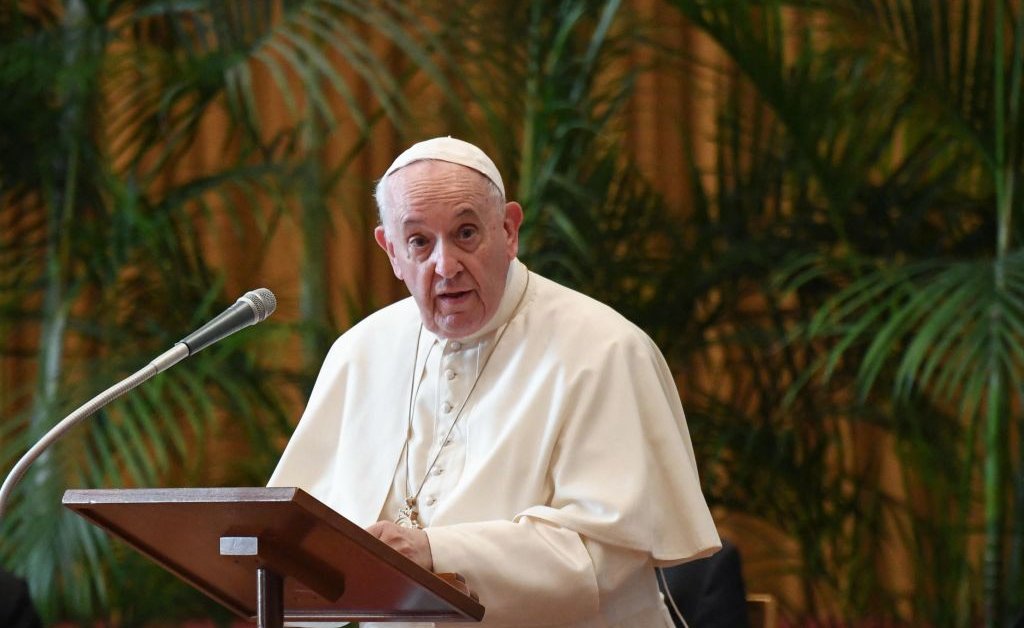Climate Change & Pope Francis: A Lasting Impact
Pope Francis has emerged as a powerful and influential voice in the global conversation surrounding climate change. His encyclical, Laudato Si' (On Care for Our Common Home), published in 2015, has profoundly impacted the discourse, pushing the issue beyond mere environmental concerns and firmly grounding it within a moral and ethical framework. This article will delve into Pope Francis's lasting impact on the climate change debate, exploring his key arguments, their influence on policy and public opinion, and the enduring legacy he is creating.
Laudato Si': A Moral Imperative
Laudato Si' is not simply an environmental document; it's a comprehensive reflection on humanity's relationship with the planet and each other. Francis argues that climate change is not merely a scientific problem but a moral crisis, stemming from a disregard for the interconnectedness of all creation. He calls for a profound shift in our understanding of human responsibility, emphasizing the intrinsic value of nature and the urgent need for ecological conversion.
Key Themes in Laudato Si':
- Integral Ecology: This central concept highlights the interconnectedness of environmental, social, and economic issues. Francis argues that addressing climate change requires tackling poverty, inequality, and social injustice simultaneously.
- Environmental Degradation and Social Injustice: The Pope directly links environmental destruction with social inequality, noting that the poor and marginalized communities often bear the brunt of climate change's impacts.
- Sustainable Development: He advocates for a paradigm shift towards sustainable practices, urging a transition away from fossil fuels and towards renewable energy sources.
- Intergenerational Justice: Francis emphasizes the responsibility of current generations to protect the planet for future generations, ensuring a habitable world for their children and grandchildren.
Impact on Policy and Public Opinion
The publication of Laudato Si' had a significant ripple effect.
Policy: The encyclical has influenced policy discussions at both national and international levels. Many Catholic-majority countries have integrated its principles into their environmental policies. Furthermore, it has strengthened the voices of faith-based organizations advocating for climate action within international forums like the United Nations Climate Change Conferences (COPs).
Public Opinion: The Pope's moral authority and his clear articulation of the ethical dimensions of climate change have resonated with a broad spectrum of people, not just Catholics. His message has helped to raise awareness and mobilize public support for climate action, particularly amongst those who might previously have been hesitant to engage with the issue.
Specific Examples of Impact:
- Increased engagement from faith-based organizations: Since Laudato Si', numerous Catholic organizations have intensified their advocacy efforts on climate change, engaging in lobbying, education, and grassroots activism.
- Shift in the narrative: The encyclical helped to shift the narrative surrounding climate change, framing it as a moral and spiritual imperative alongside a scientific one. This broader framing has been instrumental in mobilizing broader support.
- Investment divestment: The Pope's call for a transition away from fossil fuels has spurred divestment campaigns from faith-based institutions and individuals, shifting investment toward more sustainable options.
The Enduring Legacy
Pope Francis's commitment to environmental stewardship extends beyond Laudato Si'. His ongoing pronouncements and actions continue to reinforce his message and inspire action. His commitment to highlighting the ethical implications of climate change ensures that the discussion will remain firmly rooted in a moral framework, urging collective responsibility and global cooperation.
His legacy will likely be defined by:
- Continued advocacy: Pope Francis will continue to be a vocal advocate for climate action, influencing global dialogues and inspiring individuals to take responsibility.
- Inspiring future generations: His message resonates deeply with young people, inspiring a new generation of environmental activists and leaders.
- Promoting integral ecology: The concept of integral ecology will continue to shape discussions on sustainable development and the interconnectedness of environmental and social issues.
In conclusion, Pope Francis's contribution to the climate change debate is profound and far-reaching. His moral leadership, combined with the clear and compelling arguments presented in Laudato Si', has had a substantial impact on both policy and public opinion, leaving an enduring legacy that will continue to inspire action for years to come. His work serves as a powerful reminder that tackling climate change requires not only scientific solutions but also a profound change in our hearts and minds, a collective commitment to care for our common home.
